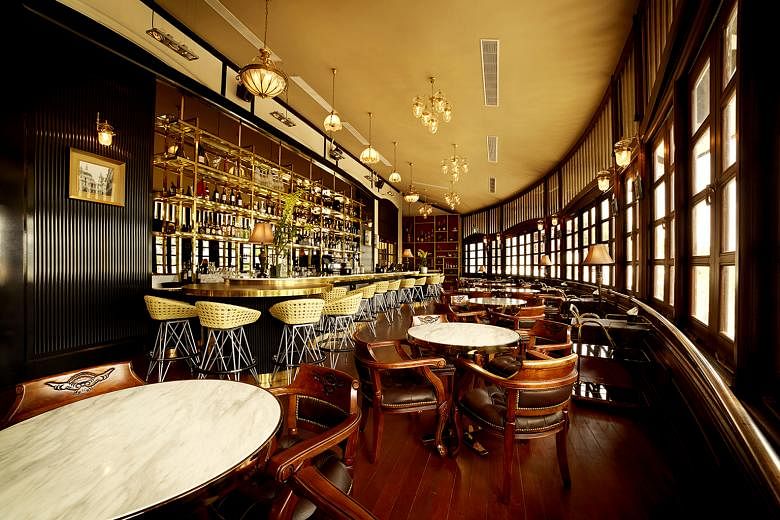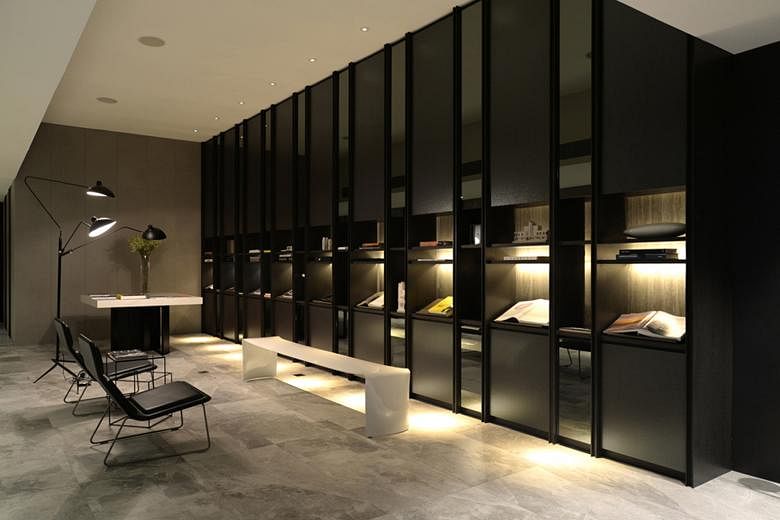When multi-disciplinary firm studiogoto was tasked to design a showroom for a tile retailer, its designers did not go for the typical look, where tiles are presented in swatches or stuck on panels.
Instead, they used the products sold by their client, tile and stone specialist Rice, in the design. Tiles of different colours and patterns, for instance, adorn the walls of riceLAB, a four-storey showroom of Rice.
The second level, in particular, is done up like a hotel suite, so customers can see how tiles can be used with other materials.
Ms Kimberly Toh, 46, architect and co-partner at studiogoto, says the designers wanted riceLAB to look different from traditional showrooms.
She says: "Using the tiles the way we did demonstrates their possibilities. Home owners and designers who come to the showroom can also visualise better."
The project also caught the eye of the judges at this year's Design Excellence Awards and they gave it a gold.
The annual awards, handed out on Thursday night, recognise the best of local and regional design in commercial, residential and public design categories.
The event is organised by Interior Design Confederation Singapore and supported by the DesignSingapore Council. It is open to practitioners and students in Singapore and the Asia-Pacific region.
The awards are divided into two categories: Industry Design Excellence Awards (I-DEA) for interior designers and firms; and Spatial Design Awards (Spade) for students pursuing spatial design-related disciplines.
In both categories, projects are placed inthe Singapore or AsiaPacific category. Subsequently, they compete in areas such as Retail Design, F&B Design and Residential Design.
Under the I-DEA umbrella, the categories are then whittled down further into niche areas, defined by size or type of project.
There was a bumper crop of 118 winners at this year's awards, held for the fourth time. There were 280 submissions from Singapore and the Asia-Pacific region, including Japan, Australia and Indonesia.
The projects were first shortlisted, then the judges decided if they would be given gold, silver or bronze awards. There can be more than one winner in the same band.
The judging criteria included the "wow factor" of the design concept, site context and how the design works around challenges and constraints.
Chief judge Natalie Louey, who specialises in hospitality design and works at interior design practice Geyer, says she has seen design standards improve since she was last a judge in 2014.
She adds: "The designers had firmer ideas of what they wanted to do with their designs and were able to balance their aspirations with the outcomes."
The firm studiogoto was a double winner. Apart from the gold award in Retail Design sub-category "Best Above 5,000sq ft" for riceLAB, it also clinched silver for the interiors of Aria Villas Ubud in Bali in the "Hospitality Design Under 50 Rooms: Boutique Hotels, Serviced Apartments" sub-category.
Other Singapore winners included JPA Design, 0932 Design Consultants and RT+Q Architects, as well as Super Fat Designs, which took home two awards, including a gold for Best Bar under F&B Design.
Inspired by the charming colonial Meyer House building at Changi Civil Service Club, Super Fat Designs, a five-year-old multi-disciplinary interior firm, designed a restaurant-bar that looks out at the sea.
Mr Lin Weizhang, 39, the firm's principal, says the win was a surprise. It was the first time the company had submitted projects to the awards.
He adds: "Looking at the high quality of last year's wins, we wanted to join to see where we would stand. It's a good way to benchmark ourselves."



